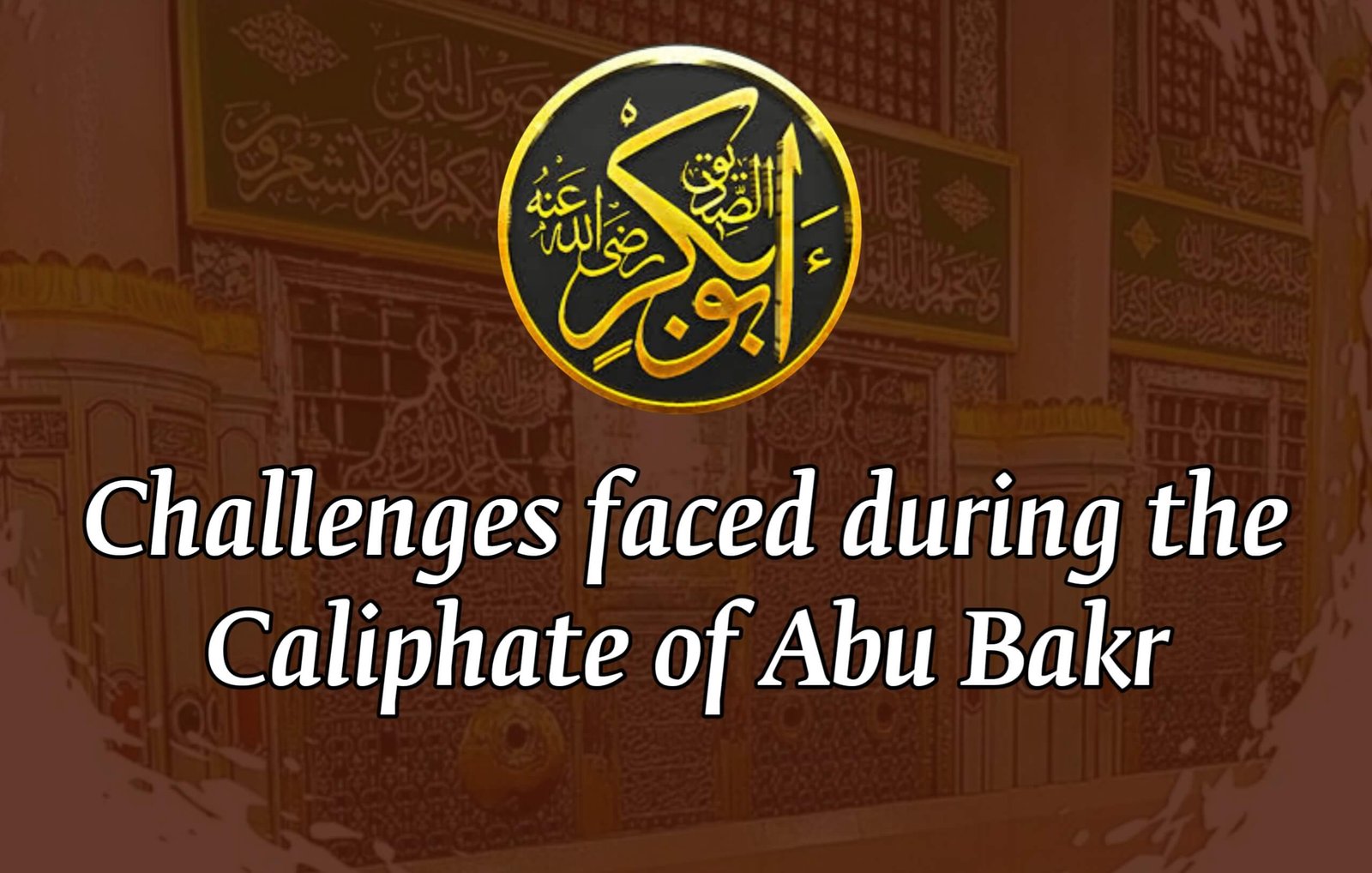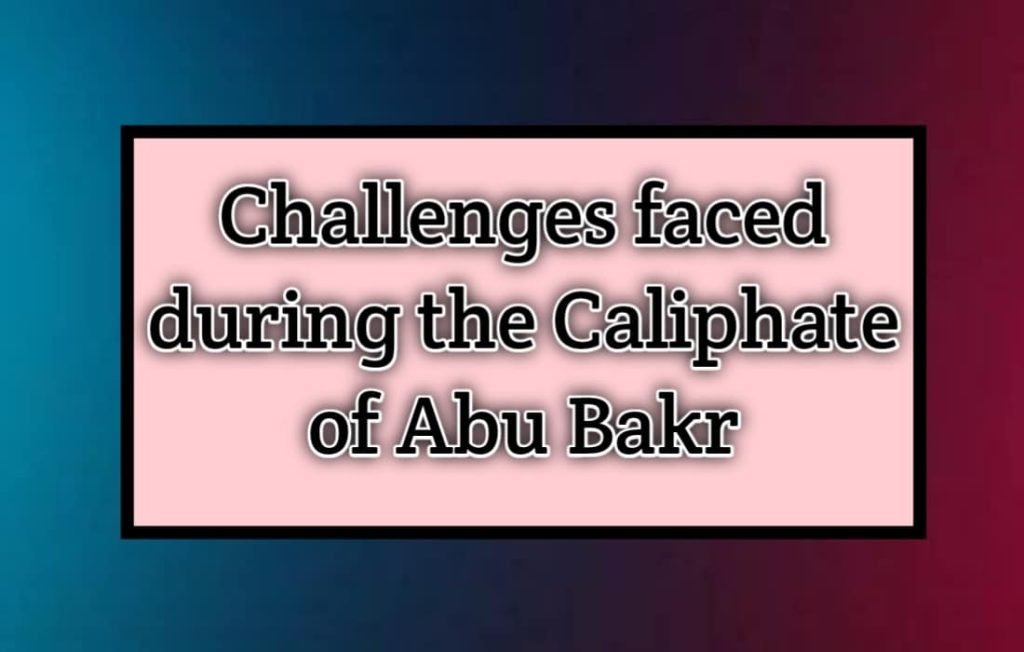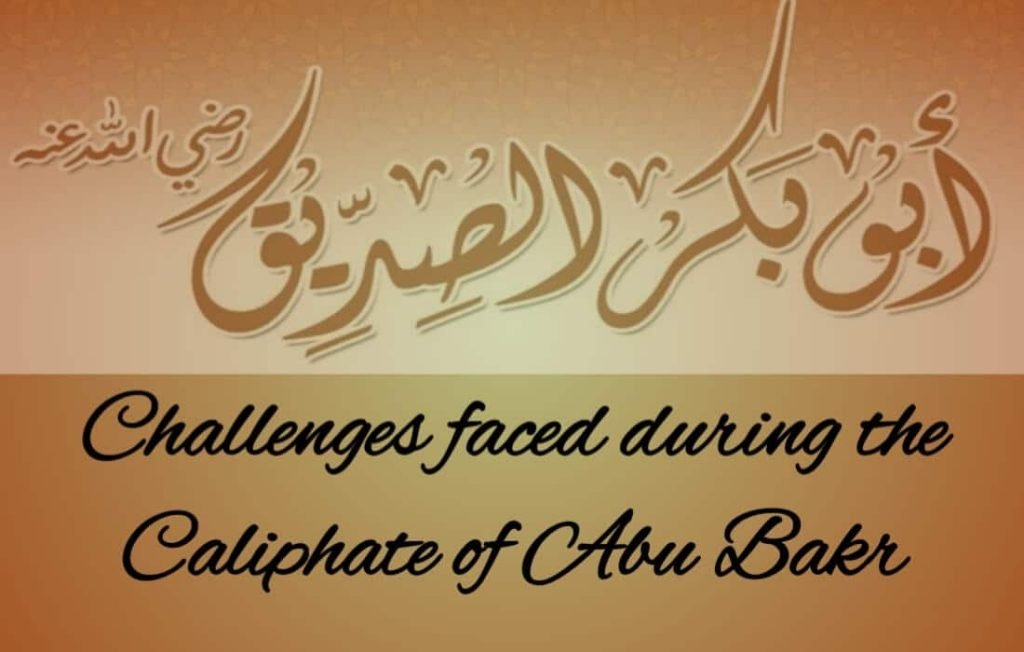Denial from Making Madina the Capital State
The hypocrites argued that Prophet Mohammad had neither appointed his caliphate nor there are any instructions in Quran which signal towards making Abu Bakr as the first Caliphate. They further argued that Holy Prophet in his life had allowed tribes to be independent in their matters. Now their demand of seeking autonomy is fair and square. Regarding this matter the hypocrites presented several arguments and justifications.
Mohammad Haikal writes:
The hypocrites presented different justifications and used Bahrain and Qeydar as reference. They said that when those countries were conquered and their governors when accepted Islam, Holy Prophet let them keep their post and did not replace them. Similarly, if we elect someone the ruler of our state then how can someone object, as long as the ruler is the follower of Islam. (Abu Bakr)
These hypocrite tribes neither accepted the leadership of Ansar nor the Immigrants rather they stated that they were the followers of Islam just like them. They further said that they were better than them just because of more education. Therefore, they had right just to become their teachers. They added: “We cannot allow them to rule over us.”






96 Thoughts to 'Challenges Faced During the Caliphate of Abu Bakr'
Waheed Hassan
18/06/2022 at 8:01 pmvery enlightening article. Thank you
Ashiq e Mustafa
18/06/2022 at 8:43 pmMohammad Hussain Heikal writes in this regard:
It was very sensitive era. The news of the death of Prophet Mohammad spread like a wildfire in every part of Arab world. It is said that no other news had spread so fast in the history of Arabs. Every tribe and every town soon became aware of this heartbreaking news.
Shoaib sq
31/08/2022 at 12:41 amBest article
M SAEED
30/08/2022 at 11:07 pmBest article
imran
18/06/2022 at 8:45 pmGreat Article Subhan Allah
Noreen
18/06/2022 at 8:52 pmVery nice and informative article
Rashid Gulzar
21/06/2022 at 3:51 pmVery interested
Mahroo
25/07/2022 at 10:35 pmVery informative article
imran
18/06/2022 at 8:54 pmGood Article for Divine Lover
imran
18/06/2022 at 8:58 pmVery Informative Article
Maira Sarfraz
30/08/2022 at 7:46 pmExcellent Article
حمزہ سروری قادری
18/06/2022 at 9:27 pmAmazing Artical❤❤
Zainab Moghees
18/06/2022 at 9:42 pmBest article
Ghulam Qadri
18/06/2022 at 10:09 pmVery Informative article
Shoaib sq
18/06/2022 at 10:25 pmNice article
RAF RAF
18/06/2022 at 10:31 pm👌🏻
Ayeshaysq
18/06/2022 at 11:03 pmVery informative article
Maryam Gulzar
18/06/2022 at 11:46 pmVery informative article
Amna moghees
19/06/2022 at 12:02 amBehtreen
حماد
19/06/2022 at 12:19 amحق بیان فرمایا ۔ ماشاءاللہ ۔
Abeeha
19/06/2022 at 12:38 amGreat article👍🏻👍🏻👍🏻
Hurr
19/06/2022 at 2:11 amIndeed Abu Bakr Siddiq ra was a wise and sagacious person
Fatima
19/06/2022 at 2:13 amVery well written article
sportsman
18/06/2022 at 9:24 pmVery nice and informative article
M rafiq
18/06/2022 at 9:41 pm💖💖💖
M Rafiq
18/06/2022 at 9:46 pm💓💓
Salma Tabassum
19/06/2022 at 4:04 amGreat article
Nasir Majeed
19/06/2022 at 7:50 amUmar ibn Khattab relates that when Prophet Mohammad passed away, several tribes of Arab renounced Islam and said that we will offer salat, but we will not pay zakat. On hearing this, I went to Abu Bakr and said, O Caliphate of Prophet! Be lenient with these people. Abu Bakr replied, I Swear to Lord! I will fight with them until I have sword in my hand. Even though in return I get zakat equivalent to the rope of camel. (Tareekh al-Khulfa)
M. Amjad
19/06/2022 at 10:33 amHazrat Abu Baker saddiq R. A good caliph of islam.
Ahsan Ali
19/06/2022 at 11:51 amexplained in a very beautiful manner
حمزہ سروری قادری
25/07/2022 at 9:59 pmAmazing …❤
Walter White
20/06/2022 at 12:36 amNo one should worry, Islam is an eternal religion and will last forever. It will neither weaken nor can anyone hurt its integrity.” (Abu Bakr)
Moeen Afzal SQ
19/06/2022 at 9:39 pmNice Article
Sofia Sultan
20/06/2022 at 3:34 amIt was a unique blog to read, very well written, look forward to its next episode
Nasir Hameed
20/06/2022 at 9:26 amBest Article
Faizan Yaseen
20/06/2022 at 12:15 pmWell explained
Fazal Dad
20/06/2022 at 1:54 pmMashaAllah great article ❤💯
malik
20/06/2022 at 4:23 pmVery informative article. Thanks for sharing
Abdul Razzaq Sarwari Qadri
25/06/2022 at 11:31 amGreat 👍
Rafaqat Hussain
27/06/2022 at 10:13 amBest artical
Rafaqat Hussain
27/06/2022 at 10:14 amMasha Allah great artical
Ghulam Qadri
25/07/2022 at 9:02 pmAbu Huraira said:
“Had Abu Bakr not become the caliphate of the Prophet, then believers in Allah had not existed.”
imran
25/07/2022 at 9:11 pmBest Article for Divine Lover
imran
25/07/2022 at 9:13 pmInteresting Article
Imama
25/07/2022 at 9:22 pmVery informative article…❤️👌💯
حمزہ سروری قادری
25/07/2022 at 10:01 pm❤💚💜
RAF RAF
25/07/2022 at 10:30 pm💓
Rana zeeshan
25/07/2022 at 10:32 pmGood Article for Divine Lover❤️
M SAEED
25/07/2022 at 11:00 pmGreat article
Ashiq e Mustafa
25/07/2022 at 11:57 pmSome of the common excuses people made are as follows:
Since the death of Holy Prophet has arouse differences and troubles, it is better to deal with them first before dealing with outside matters.
The safety of Madina is in jeopardy from the false claimers of prophethood and the deniers of paying zakat. Should there be any chaos or disturbance from those groups then there would not be army in Madina to protect it which may result in an easy defeat of the Muslims.
If the troops leave, then all the tribes will know that Muslims are lacking the army to defend themselves which may give them chance to create a commotion.
If it so important to send troops anyway then Abu Bakr must replace the commander. As Usama ibn Zayd is an inexperienced twenty-year-old young man.
People completely disregarded the fact that Holy Prophet had chosen Usama as the commander of the troops. Several people raised the point of replacing the commander during the life of Holy Prophet as well. This decision was opposed with full force after his death also. Bravo to the steadfastness and wisdom of Abu Bakr that he faced all the opposition. He stood by the decision of Holy Prophet and implemented it after his death
Asmah
26/07/2022 at 2:06 amSuperb article!
SQ
30/08/2022 at 4:42 pm❤❤❤
Ghulam Qadri
30/08/2022 at 5:18 pmWhen Umar saw the passion of Abu Bakr, he said:
“I have a firm believe now that Allah has enlightened Abu Bakr in the matter of fighting against the deniers of zakat. Abu Bakr has taken the right decision.”
Salma Tabassum
26/07/2022 at 2:06 amVery informative article
Saman
25/07/2022 at 9:23 pmmashAllah
Muhammad Amjad
26/07/2022 at 12:04 am👌🏻👌🏻👌🏻👌🏻
Muqadas Younas
26/07/2022 at 7:39 amVery informative article
M rafiq
26/07/2022 at 3:22 am❤💖💖
M rafiq
26/07/2022 at 3:25 am❤❤
Ayeshaysq
26/07/2022 at 8:57 amV informative article
Fazal Dad
26/07/2022 at 11:31 amMashaAllah great article 💯❤🌹
Maira Sarfraz
26/07/2022 at 11:36 amVery Informative
M Rafiq
31/08/2022 at 8:38 am💖💖💖💖
Faizan Yaseen
26/07/2022 at 1:55 pmWell explained about era of Hazrat Abu Bhakar siddeque
fatima
26/07/2022 at 10:06 amVery well researched Article
Fatima
26/07/2022 at 7:05 pmAmazing article that shows Abu Bakr’s love for the Holy Prophet.
Asmah
27/07/2022 at 5:16 pmI loved this article, so motivating!
sportsman
27/07/2022 at 3:30 pmNicely explained
Ahsan Ali
29/07/2022 at 1:21 amHazrat Abu Bakr handled all the issues with quite wisdom
Rafaqat Hussain
30/08/2022 at 3:24 pmBest Artical Masha Allah
Rafaqat Hussain
30/08/2022 at 3:27 pmGreat best artical Tehreek Dawat e Faqar Zindabad
Ashiq e Mustafa
30/08/2022 at 3:44 pmAn informative and different article on subject.
Saira sarfraz
30/08/2022 at 5:11 pmGreat Article 👍
fatima
30/08/2022 at 5:59 pmVery briefly explained article
imran
30/08/2022 at 7:02 pminteresting Article
imran
30/08/2022 at 7:05 pmGood Article for Divine Lovers
imran
30/08/2022 at 7:08 pmVery Informative
imran
30/08/2022 at 7:10 pmNice Article
Abdul Haseeb Sarfraz
30/08/2022 at 7:25 pmUmar ibn Khattab relates that when Prophet Mohammad passed away, several tribes of Arab renounced Islam and said that we will offer salat, but we will not pay zakat. On hearing this, I went to Abu Bakr and said, O Caliphate of Prophet! Be lenient with these people. Abu Bakr replied, I Swear to Lord! I will fight with them until I have sword in my hand. Even though in return I get zakat equivalent to the rope of camel. (Tareekh al-Khulfa)
GHULAM HAIDER
30/08/2022 at 9:22 pmNice Article
Zainab
30/08/2022 at 9:37 pmGreat article
Nasir Majeed
30/08/2022 at 9:38 pmAbu Bakr is the first Rashidun Caliphate. The duration of his caliphate was two years and four months.
Nasir Majeed
30/08/2022 at 9:39 pmImpressive article
Salma Tabassum
30/08/2022 at 10:16 pmVery informative article
Thanks for translate in English
Abdulrehman
30/08/2022 at 11:10 pmMashaallah
Muhammad Fahad Shahzad Khan
31/08/2022 at 1:21 amVery Nice Article
Very Informative Article
Thanks alot for sharing
Faiza
31/08/2022 at 1:49 amHazrat Abu Bakr Siddiq ra was a wise and man of deep insight
arshia123
31/08/2022 at 2:19 amVery well connected and explained
sportsman
30/08/2022 at 10:10 pmVery nice and informative article.
Faiza sq
31/08/2022 at 4:57 amAmazing
M Rafiq
31/08/2022 at 8:47 amgood
Fazal Dad
31/08/2022 at 11:50 amMashaAllah great article💯🥰❤❤❤❤❤❤❤❤
malik
31/08/2022 at 4:15 pmA detailed article MashaAllah. Never read such an amazing article about Hazrat Abu Bakr before. Thanks
Hammad
31/08/2022 at 7:09 pmHaq Farmaia
Moeen Afzal SQ
01/09/2022 at 10:30 amVery nice article
Shair ali
06/09/2022 at 9:25 pmBest article